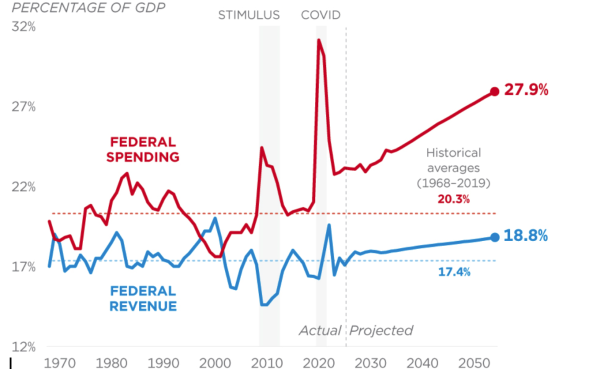New Writing Center changes school dynamic
Not sure how to write your college essay? Need a push to start that paper? Have questions regarding grammar and punctuation? Many students would answer “yes” to at least one of the questions, and the newly opened Writing Center is a solution to all writing-related problems.
After struggling to produce intelligent and profound writing for countless college applications and English classes, many students have been drawn to the Writing Center. Posters are all over campus, detailing how easy it is to schedule a 30 minute individual tutoring session with a Writing Fellow or faculty member.
Since its opening after Labor Day weekend, the Writing Center’s primary function has been one-on-one tutoring for essays. At the Writing Center, current and former student Writing Fellows as well as English teachers assist students with college essays, poetry, and papers, and help correct basic grammar and punctuation misconceptions.
Students, whether seeking long-term mentoring or a quick jumpstart on an essay, may drop in or make an appointment at westminsteronlinewriting.com either during a free period or after school from 3:30-5:00 p.m. on Monday through Thursday. The center is located primarily in Askew 211 and is headed by English department faculty: director Jennifer Dracos-Tice and assistant director Mario Chard.
“There’s universal training for us around workshopping practices [for the staff],” said Dracos-Tice. “If you come in here, you should always have an opportunity to read your work aloud, to have it commented on in a certain way, [and] it should be somewhat standard across the board with some individualization.”
On an average day at the Writing Center, students come in and read their work out loud to either a Writing Fellow or a faculty member. The feedback given is unique in that it is always two-way feedback. Students are given several chances to explain the motives and process behind their writing and to ask any questions.
The Writing Fellow or faculty member will then provide constructive feedback.
For example, many instructors probe the students with questions to further their connection and understanding.
“How can you further express a beat in an all-consuming way?” said English teacher and Writing Center staff member Amy Patel. “You do it beautifully with repetition. How else?”
In addition to offering students help with writing assignments, the Writing Center brings in visiting authors, two in the fall and two in the spring, and holds craft talks.
“It’s also a place for celebrating writing on campus,” said Chard. “[We will] try to generate more interest and a safe place for writers on campus. We have great ambition.”
For example, historical fiction writer Will Dunlap visited campus on Nov. 16. Authors will give public readings and hold in-depth workshops with the Writing Fellows. The center will also hold one open craft talks per semester on a focused subject such as thesis statements.
Although the Writing Center is marketed as “new” and “inaugural,” it is not completely new to Westminster. There was a similar student service, directed by Dracos-Tice, from the early 90s until 2011 in the bottom level of Askew.
“[It was a] real room with couches and where faculty were staffed, two faculty members per class period. It was part of our teaching load,” said Dracos-Tice.
After the close of the original Writing Center, Dracos-Tice founded the Writing Fellows program, a year-long class (for 10th-12th graders) held outside of typical school hours and mainly mentors individual students who are struggling with writing.
In past years, Writing Fellows would mentor students who are struggling with writing by meeting with them regularly and individually. Although this process was very beneficial, it would only reach a handful of students. The demand and need for a Writing Center grew stronger and deeper.
The reopening of the writing center is attributed to a combination of several ideas and individuals that connected to serve a singular, multifaceted purpose. Senior Jamie Pastan, a former Writing Fellow, initially wanted to start a blog to keep the Writing Fellows and Westminster writing community connected online.
“[At the end of the class], none of us wanted Writing Fellows to end. It’s a class, but it’s more of a community,” said Pastan. “Last May I brought up this idea to start an online blog [to Dracos-Tice] and then it turned into a schoolwide Westminster project to both unify the creative writing community and reach out to people that need help.”
At the end of several discussions, Dracos-Tice applied for and was awarded a grant to fund the restart of the Writing Center. Through the process, Chard became the assistant director and Pastan the website designer and administrator.
Pastan created the Writing Center’s website, westminsteronlinewriting.com, which features a blog with updates relevant to the writing community, an event calendar, and writing resources for remote access to help. Because resources are still being compiled and standardized, the writing resources page has not yet been completed, so the website currently functions primarily as an easy way to schedule appointments to the Writing Center using a short form.
The page has had approximately 3800 hits, and the number is expected to increase drastically in the future when the writing resources are uploaded.
The staff of the Writing Center is constantly developing more efficient ways to connect and help all writers, one of which is open communication between the students and staff.
At the end of the 30-minute time slot, students are asked to fill out a short survey rating their experience in the Writing Center. Pastan, who also collects stats for the Writing Center, sees the positive responses as evidence for the center’s success.
“Everything that’s gone into it [has] this business aspect, working hand in hand with the faculty and getting more of a perspective into how the administration and bureaucracy of Westminster works,” said Pastan. “I want to see how the Writing Center is doing what people are thinking, and the feedback is absurd.
Students across the board are impressed by the help they received at the newly opened writing center, reflected in the writing center’s feedback stats. Out of 205 responses since the opening, students have rated the writing center a 96.4 percent overall. Extensive training, money, and time commitment of the service and staff are reasons behind the center’s success. Unlike the previous Writing Center, the new Writing Center is open to 5:00 p.m.
“[Our Writing Center] is part of what makes us a leader in the field of teaching English,” said Dracos-Tice.
Chard attributes students’ success to their willingness to ask for help.
“I think it’s an important culture at Westminster that the most successful students are those who seek help,” said Chard.
The output of the work that has gone into the re-ignition of the Writing Center is an extensive source of pride for those involved.
“It’s nice for me, as someone who as someone involved in setting this all up, to know that when I leave next year to go to college there’s this system in place where kids can make appointments and get help,” said Pastan.




